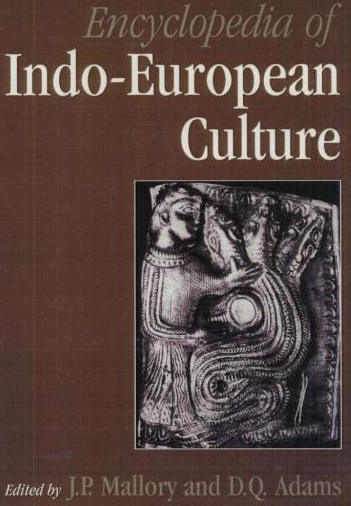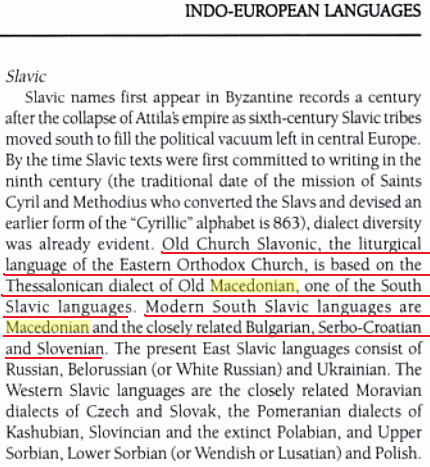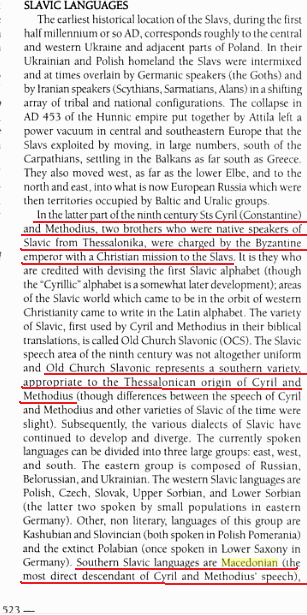Macedonian names and makeDonski pseudo-linguistics: The case of the name Glaukias
Miltiades Elia Bolaris
americanchronicle.com
Balkan Illusion - phantasia archaica:
"...it is very interesting to note that many of the authentic ancient Macedonian words, according to their etymology and pronunciation, have a striking resemblance to the appropriate words used in the modern Macedonian language (and other so called "Slav" languages)[sic]."..."Glaukia(s). Could this name be derived from the noun "glava" (a head)? In 19th century Macedonia one finds the male name Glavko.". From: "Similarities between ancient Macedonian and today's' Macedonian Culture (Linguistics and Onomastics)" by Aleksandar Donski, celebrity propagandist and folk "historian" from Skopje, FYROM.
There was a lot of commotion in the conservative circles of Rome, in 1901, when the Guerrieri-designed lions of the Aqua Pia fountain, in Piazza della Republica were all of a sudden replaced by four nude bronze nymphs. Commotion or not, the nymphs stayed, and to add insult to conservatism's injury, the people forgot the old Pious Water name and started calling it the Fontana delle Naiadi / the Neiads Fountain. To make things even worse, some artistically challenged Romani saw the Dolphin the Octapus and the fish in the water fountain, and the whole mix somehow reminded them of their favorite sea food dinner, hence the name "Fritto Misto / Fried (seafood) Mix", stuck for the fountain, to the dismay, I am sure of Mario Rutelli, the Sicilian sculptor who created it. Dismayed or not, Rutelli was subsequently commissioned to create yet another sculpture, for the middle of the fountain, which he called the Glaucos Group / Gruppo Glauco, which was installed ten years later, in 1911-1912.
Glaukos/Glaucos/Γλαύκος, the human-like sea deity, the sea demon who is portrayed in the middle of the Fontana delle Naiadi was a poor Boeotian fisherman of ancient times, who become immortal by eating a life-giving sea weed. He grew fins and a fish tail and became an immortal creature of the sea. He was accepted by Poseidon, Nereus and Amphitrite as their companion and became a benevolent sea demon that always run to help seamen in distress in the seas. He was occasionally metamorphosed into a female, the white faced Glauce / Γλαύκη, a mermaid.
There are many personages with the name Glauke/Glauce/Γλαύκη in Greek Mythology. One was an Amazon, also named Hipollyta, who became wife of Theseus. Another Glauce was the daughter of Kyknos (the "bright white" one) who had a child by Ajax. A woman named Glauce was one of the daughters of Danaos and Phoebe (the "illuminating" one). Another Glauce was daughter of Uranus, a nymph born of his dripping blood. A more tragic Glauke was the the daughter of Creon, the king of Corinth. Jason fell in love with her, and Media his wife, gave her a chiton as a gift, which burned her alive once she wore it on her. The fountain of Glauke, named after the tragic princess, can still be seen in the ancient ruins of the city of Corinth.
Glaucias was the name of the physician who attended Hephestion/Ἠφαιστίων on his final days, and whom Alexander had crucified for failing to save his friend's life. And Glaucias was also the name of a Macedonian cavalry companion in the battle of Gaugamela/Γαυγάμηλα.
But as we will quickly saw, Glaukos/Γλαύκος was a fairly common Greek name that is encountered throughout the Greek world.
We will start with an inscription from Thessalonike, in Macedonia:
Regions : Northern Greece (IG X) : Macedonia, IG X,2 1 676
Makedonia (Mygdonia) — Thessalonike — 4th/3rd c. BC
Κλεὼ
Γλαυκίου.
Cleo
daughter of Glaukios
This inscription is also from Macedonia, the kingdom (later province) of Lyncestis:
Regions : Northern Greece (IG X) : Macedonia
IG X,2 2 41
Makedonia (Lynkestis) — Crnobuki — 2nd/3rd c. AD — Spomenik 71 (1931) 24, 47
Νίκαρχ-
ον Γλαυ-
κίου ἐτῶν
λεʹ· ἥρως.
To Nokar-
chos son of Glau-
kias, age
35 years, a hero
South of Macedonia, in central Greece, we read about:
Regions : Central Greece (IG VII-IX) : Megaris, Oropia, and Boiotia (IG VII)
Epigr. tou Oropou 526
Boiotia — Oropos: Amphiareion — ca. 80-50 BC — IG VII 419 — AE (1925/26) 36, 150
Γλαυκίας Σωσάνδρου Θηβαῖος
Glaukias son of Sosandros, a Theban
In Southern Greece, in the Peloponnese, we read:
Regions : Peloponnesos (IG IV-[VI]) : Saronic Gulf, Corinthia, and the Argolid (IG IV) IG IV 728
Hermionis — Hermione — ca. 405 BC
Γλαυκίας Κάλλωνος
Glaucias son of Callon.
We cross the Ionian Sea and we go to the early 5th c BC Sicily where a South Italian Greek Glaucias is found in the city of Selinous/Σελινούς:
Regions : Sicily, Italy, and the West (IG XIV) : Sicily, Sardinia, and neighboring Islands
IGASMG I² 62
Sikelia — Selinous: Buffa — early 5th c. BC — SEG 26.1114 — IGDS 30
Qυλίχα {Κυλίχα}
Ξενοκλε̑ς
Γλαυκίας.
Qylicha
Xenokles
Glaukias
We sail south, crossing the Mediterranean, and in Hellenistic Egypt of King Ptolemaios and Queen Cleopatra , in the 1st c BC we find two persons named Glaukias, on a royal list of Greek names, one used as a proper name the other as a patronym:
Regions : Egypt, Nubia and Cyrenaïca : Egypt and Nubia
Milne, Cairo Mus. 25,9296
Eg. — Hermoupolis M. (El Ashmūnein) — 80-69 bc
Γλαυκίας Ἀπολλωνίου
Εἰσίδωρος Γλαυκίου
Glaucias son of Apollonios
Eisidoros son of Glaucias
Sailing northeast of Egypt, we arrive to the homeland of Hippocrates, the island of Cos/Κώς:
Regions : Aegean Islands, incl. Crete (IG XI-[XIII]) : Cos and Calymna
Iscr. di Cos EV 166
Kos — Kos — 3rd c. BC
Γλαυ]κίας Τ[— —]
Ἀσκλη[πιάδης]
Ἀσκλ̣[ηπιῶι].
Glaukias Τ[— —]
an Asclepiad
(dedicates) to Asclepios
Across from Cos and the Aegean, on the Asian Minor mainland, now in Turkey, we arrive to Ionia/'Ιονία and the city of Ephesos/ Έφεσος
Regions : Asia Minor : Ionia
Ephesos 882 Dedication to a god [Sarapis?], mentioning priest Glaukias
Menekratous; c. 244/204 BC; found at Ephesos: Keil, AAWW 91,
1954, 222, no. 3 (PH); SEG 15, 707; Vidman, Syll. 297; *IEph
1246.
IEph 1246
Γλαυκίας Μενεκράτους.
Glaukias son of Menekrates.
We also find the name Glaucias as the name of a king of the Illyrians, who resisted Alexander the Great on his expedition through the Balkans: Γλαυκίας ὁ τῶν Ταυλαντίων βασιλεύς / Glaucias the king of the Taulantians, tells us Arianus/Ἀῤῥιανός in /Alexander's Anabasis/Ἀλεξάνδρου Ἀνάβασις, Book I. The use of the name by Illyrian chieftains, is either a sign that some had adopted Greek names, which is possible but not too probably at this early age, or, more plausible, it was a cognate of the Greek name. Other Illyrian names sound like Greek (Plator, Pleuratos etc) or Roman, but they can be explained by their common descent from a common Indo-European linguistic source, not necessary as loans.
We even encounter it much later on as the last name of a family in Rome. We hear for example of Gaius Servilius Glaucia a Roman politician, who cooperated with Gaius Marius at the turn of the 2nd to the 1st c BC. In this instance it is more possible that it was a loan from the Greek, as many other Roman names of the time.
Professor Donski offers an imaginary pseudo-linguistic explanation on a supposed derivation of the name Glaukias from the Slavic word for head: glava/гла́ва. Nothing could be farther from the truth.
The reconstructed original Indo-European word for head is *ghebhol. This word has cognates in several languages, including Old Norse "gafl" from which through French the English gable (meaning "head of the wall" - the triangular section at the very top of the house wall) is derived. In Tocharian A we encounter 'spal meaning "head", and gable for head or scull in Germanic. The word cupola, which describes the round "head" on top of a church or other public building, like the US capitol, is also related.
In Greek, *ghebhol gives us kephale/κεφαλή meaning head, a word unchanged since ancient times. In the Macedonian dialect the ancient Macedonians used to pronounce kephale/κεφαλή as kebale/κεβαλή or keble/κέβλη, with an aberrant «β/b» replacing «φ/ph», a typical feature of the Macedonian dialect and not only. In Attic Greek we hear in Aristophanes' "Birds" the term keblepyris/κεβλήπυρις, and Euphorion names Athena kebleghonos/κεβλήγονος meaning "born from the head" (of Zeus).
Another interesting derivative of *ghebhol for head in Greek is the word kauleion/καυλείον or kaulion/καυλίον which indicated the "head" at the end of a stem. Examples were kaulokinara/καυλοκινάρα for artichoke "head" with stem, and kaulomycetes/καυλομύκητες for mushrooms. When the defenders of a city were able to chop off the hed of the Ramming machine, they called the action apokaulosis/ἀποκαύλωσις. Kauli/καυλί has retained its "head on a stem" ancient meaning but it is now used to describe the glens penis. Kaulono/καυλώνω is a commonly used modern Greek verb that describes the condition of sexual excitement that causes the rising of the masculine lower "head".
The Indo-European *ghebhol also gives us the cognates in the Baltic and Slavic languages. Lithuanian galvà, Old Prussian galwo, Latvian galva and Proto-Slavic *galwā from which the ́common Slavic *golvà is derived that eventually developed into Old Church Slavonic glava, Russian golová, Polish głowa, Serbocroatian and Bulgarian glava, etc. (
Proto-balto-slavic encyclopedia topics | Reference.com). The use of the name by an Illyrian chiftain,
In other words, in Greek we find: kephale/κεφαλή and in its Macedonian dialect we encounter kebale/κεβαλή or keble/κέβλη. Additionally we also find: kauleion/καυλείον or kaulion/καυλίον.
These are all distant cognates with the Slavic *galwā, *golvà, glava, golová, głowa, and again glava, but the Attic Greek and the Macedonian Greek could not possibly be derived from the Slavic, because of their antiquity, nor is it the other way around at any rate. They are simply related, all being derived from the same ancient Indo-European root.
Unfortunately for professor Donski's case, Glaukias/Γλαυκίας has absolutely no connection with either kephale nor glava, or any kind of head, whatsoever.
The name Glaukias (which in also Latin transliteration can also be written as Glaucias) but in Greek always as Γλαυκίας is derived from the word glaukos/glaucus/glaucos/γλαυκός. Our Latin Dictionary under the lemma Glaucus offers the following explanations: As an adjective, γλαυκός, meaning bright, sparkling, gleaming, grayish, etc. As a noun γλαύκος a bluish-grayish fish, and as a proper name: Γλαύκος, a Greek proper name, and it gives some examples, a son of Sisyphus, a commander of the Lydians in Homer;s Iliad, and the fisherman turned Sea god, in the beginning of our narrative.
In other words, this is not a Latin word, at all, but a Greek loan word into Latin, since all the explanations are referring us back to the original Greek, therefore it is better if we listen to the Latins and open our Greek dictionary, the 2000 plus pages long Liddell and Scott Lexicon.
Γλαυκός, ή, -όν/ glaukos, -e, -on: originally without any notion of colour, gleaming, and it gives examples of the gleaming sea, glauke thalassa, gleaming moon, glaukoio selene, stars, a dragon with gleaming eyes, glaukopis, etc.
Then later it acquires color, bluish green or olive green, as in the color of grapes, or vine leaves, the color of topaz, and frequently of the eyes, especially light blue eyes, or gray.
Pages 350 and 351 of the Liddell and Scott Greek Lexicon are full of entries like glaukia, glaux, glaukinos, glaukeious, glaukodes etc etc, numerous words all related to either glaring, like eyes of a lion or blueish gray like the eyes of goddess Athena/Ἀθήνα, Γλαυκώπις/Glaucopis. Athena's sacred animal is the Owl, Γλαύξ/Glaux, Athena noctua, the fiercely glaring eyed one, who got her name from the nocturnal appearance of her golden glaring eyes. Athena's Γλαύξ/Glaux the little owl is the symbol of wisdom, knowledge and education.
The name Glaucias/Glaukias/Γλαυκίας and the female equivalent Glaucia/Glaukia/Γλαυκία both mean the glaring, the sparkling one. Glauko/Γλαυκὠ is another name for Selene, the moon, for she is glaring in the night sky, and Glaucoma / γλαύκωμα is the opacity of the eye's lens, the cataract, that leads to blindness, as Aristotle explained to us 2350 years ago, in GA780, and that blindness is called Glaucosis/Γλαύκωσις. Glauson/γλαυσόν is a synonym of lampron/λαμπρόν, and it means sparkling, shining, while the verb glausso/γλαύσσω, means to shine something to make it glitter.
The Germanic-English words "glare" and "glaring", are not simply the translation of Glaucos, and Glaucias, but they also their cognates. All are derived from the Proto-Indo-European reconstructed word *gwelhx meaning Glow.
A related Indo-European root word *g(e)ulo- originally meant Glowing coal. This word survived in the Old Irish word gual which meant coal and in the Germanic-English word for coal. Coal, as we know, is black, but when in fire it is a glaring golden. And here is where linguistics achieves what generations of medieval Alchemists were unable to do: make gold out of coal: Another cognate of *gwelhx for glow and *g(e)ulo- for glowing coal is *ghel- which means Shine or as color: yellow. This gave us Latin Helvus(honey yellow), Lithuanian geltas for yellow, and zelvas for golden. We find it in Avestani Persian as zairi, meaning yellow, in Sanskrit Hari, in English Yellow, on Italian Giallo, and of course in the yellow metal that looks like glaring yellow charcoal: the English word for Gold. The Old Slavic word zlato, and the Baltic Latvian zelts, along with coal, gold, yellow and Giallo, and the Slavic OCS zeleni, and Greek khloros which both mean yellow green are all distantly related to the glaring, glamorous and gleaming name of Glaukias/Γλαυκίας.
Speaking of glamour, I accidentally came across the first edition of Glaucia, a Brazilian women's magazine (
REVISTA GLAUCIA: GLAUCIA - PRIMEIRA EDIÇÃO), which on its cover page was glaringly advertising to their female readers the secret to nothing less than "Mil Orgasmos!", "mil" being Portuguese for "a thousand". Glaucia, incidentally is a fairly common name in Brazil, as is Glafkos/Glaukos/Γλαύκος in Cyprus. The most famous one being Glafkos Clerides / Γλαύκος Κληρίδης (born 1919) a politician and former president of the Republic of Cyprus.
Trying to uncover these linguistic connections is to me, to say the least, fascinating. It is like trying to discover the DNA connections that bring us closer to our long lost Indo-European linguistic progenitors and our distant modern linguistic cousins, around the globe. But try to get this through the thick glava of some pseudo-makedonists whose deleterious ultra-nationalism knows only how to divide and not how to connect, how to falsify truth and not how to learn from it. They are driven by the fanatical devotion, typical of recent converts, which sees no limits to the means used to reach their end. They seek to create a make-believe national identity and fake ethno-mythology , invented and usurped from the history and culture of their neighbors.
While they undoubtedly think that what they do is in support of and in the best interests of their ethnic group and its shaken and uncertain nationalism, they in fact do a terrible disservice to the youth of their young nation, a disservice that is criminally destructive.
Knowledge is based on truth and in the clear understanding of reality, not in delirious pronouncements that have no connection to the facts. Once you chase the Glaux/Γλαύξ of Athena, away from your youth's intellectual development, it will take a very long time for her to return, if she ever does.
By teaching to your own that Glaucias is not a Greek name, is not the major damage done. The creation of the false identity and the imbecile, anti-scientific methodology used in arriving at and supporting that fake identity is what will eventually bring the toppling of the antiquarian, "Bucephalist" some said sarcastically, non-Slavic "attachments" to their true, legitimate identity and the rejection of pseudo-makedonism's BIG LIE. By then though, a lot of time will have been lost, time that could have been best used in the search for the true identity of the Slavomacedonian people, away from self pitying, self flagellation and venomous hatred of the neighborly "other".
Hegel, two hundred years ago, pessimistically said that true knowledge takes time to be acquired, and, like the Glaux/Γλαύξ, the glaring eyed bird, symbol of the Glaucopis/Γλαυκώπις the blue-green eyed, Goddess Athena, the goddess of wisdom, it unfortunately arrives too late to be of any real use, when you really need it:
" One more word about giving instruction as to what the world ought to be. Philosophy in any case always comes on the scene too late to give it...The owl of Minerva spreads its wings only with the falling of the dusk. "
Hegel, Preface, Philosophy of Right (1820).
Supporting information and documentation can be found in:
Greek-English Lexicon by Liddell & Scott, Oxford University Press, 1843-1952
The Oxford Introduction to Proto-Indo-European and the Proto-Indo-European World., by J.P. Mallory and D.Q. Adams, Oxford University Press, 2006 &, 2007
A Latin Dictionary, Lewis & Short, Oxford University Press, 1879-1993
"Evidence of «Mακεδονιστί» words in the other Greek dialects and some conclusions on the unity of the Northern Greek Group and the inclusion of the Macedonians in it", by Andreas Kyropoulos.
Επίτομο λεξικό Ελληνικής Μυθολογίας, Coincise Lexicon of Hellenic Mythology,ἐκδοτικός οίκος Χάρη Πάτση, Athens, 1969
Hellenic Epigraphic Documentation in:
PHI Greek Inscriptions, in : Searchable Greek Inscriptions - A Scholarly Tool in Progress at the The Packard Humanities Institute of Cornell University and the Ohio State University.









